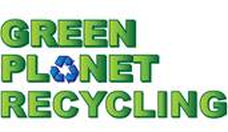Welcome to our comprehensive guide on commercial property maintenance, focusing specifically on the role of pressure washing. In this article, we will explore the benefits, applications, and best practices of pressure washing in the context of commercial property upkeep. Whether you own a business, manage a property, or are simply interested in learning more about this vital maintenance technique, you’ve come to the right place.
The Importance of Commercial Property Maintenance
Commercial property maintenance plays a crucial role in preserving the aesthetics, functionality, and value of any business establishment. Neglecting proper maintenance can lead to various issues such as deteriorating surfaces, mold growth, safety hazards, and an overall negative impression on customers and clients. Therefore, it is essential for property owners and managers to implement effective maintenance strategies to ensure their commercial spaces remain in top condition.
Commercial Property Maintenance: The Role of Pressure Washing
Pressure washing is a powerful technique commonly employed in commercial property maintenance. With the use of pressurized water, this method effectively removes dirt, grime, mold, mildew, algae, and other contaminants from various surfaces. From sidewalks and parking lots to building exteriors and roofs, pressure washing offers a versatile solution for maintaining a clean and appealing commercial property.
Benefits of Pressure Washing
Pressure washing offers a range of benefits that make it an indispensable tool in commercial property maintenance:
- Enhanced Curb Appeal: A clean and well-maintained exterior creates a positive first impression for potential customers and clients. Pressure washing can instantly transform dirty and grimy surfaces, giving your property a fresh and inviting look.
- Increased Safety: Slippery surfaces due to dirt, algae, or mold can pose a significant safety risk. Pressure washing removes these hazards, reducing the likelihood of accidents and ensuring a safe environment for everyone.
- Preventive Maintenance: Regular pressure washing helps prevent the buildup of contaminants that can cause long-term damage to surfaces. By addressing these issues early on, you can extend the lifespan of your property and minimize costly repairs.
- Improved Air Quality: Mold, mildew, and algae growth not only affect the appearance of your property but also contribute to poor air quality. Pressure washing eliminates these pollutants, creating a healthier environment for occupants.
- Cost-Effective Solution: Compared to extensive repairs or replacements, pressure washing offers a cost-effective maintenance option. It allows you to restore and rejuvenate surfaces without the need for expensive interventions.
Applications of Pressure Washing in Commercial Property Maintenance
Pressure washing is a versatile technique that can be applied to various areas of commercial properties. Let’s explore some common applications:
1. Parking Lots and Driveways
Parking lots and driveways are subjected to constant vehicular traffic, which leads to the accumulation of dirt, oil stains, and tire marks. Pressure washing effectively removes these unsightly blemishes, restoring the cleanliness and professionalism of your property’s entryway.
2. Sidewalks and Walkways
Sidewalks and walkways are high-traffic areas that often collect dirt, chewing gum, and other debris. Regular pressure washing keeps these surfaces clean, ensuring a pleasant experience for pedestrians and visitors.
3. Building Exteriors
The exterior of a commercial building is the first thing people notice. Over time, it can accumulate dirt, pollution, bird droppings, and other contaminants that detract from its appearance. Pressure washing effectively removes these stains, revitalizing the exterior and leaving a positive impression on customers and clients.
4. Roofs
Roofs are prone to the growth of moss, algae, and mold, especially in humid environments. Pressure washing can effectively remove these organisms, protecting the roof’s integrity and preventing potential leaks or damage.
5. Outdoor Furniture and Fixtures
Outdoor furniture, signage, and fixtures are exposed to the elements and can quickly become dirty or stained. Pressure washing can restore these items to their original condition, enhancing the overall aesthetics of your commercial property.
6. Dumpster Areas
Dumpster areas are often overlooked but require regular maintenance to prevent odors, pests, and unsightly stains. Pressure washing effectively removes built-up grime and helps maintain a clean and sanitary dumpster area.
Best Practices for Pressure Washing in Commercial Property Maintenance
To ensure optimal results and maintain the integrity of surfaces, it is essential to follow best practices when using pressure washing techniques. Here are some guidelines to keep in mind:
- Safety First: Before starting any pressure washing task, make sure to wear protective gear, including goggles, gloves, and non-slip footwear. Additionally, be cautious of electrical connections and delicate surfaces that may be damaged by high-pressure water.
- Choose the Right Equipment: Selecting the appropriate pressure washer for the task at hand is crucial. Consider the pressure level (measured in pounds per square inch or PSI) and the flow rate (measured in gallons per minute or GPM) to ensure optimal cleaning power without causing damage.
- Use the Correct Nozzle: Different surfaces require different nozzles to achieve the desired results. For example, a narrow nozzle concentrates the water stream for more power, while a wider nozzle covers a larger area. Always choose the appropriate nozzle to avoid causing damage or inefficiency.
- Pre-Treat Surfaces: For stubborn stains, applying a pre-treatment solution can improve the effectiveness of pressure washing. There are various commercial cleaners available for specific purposes, such as removing oil stains or mold.
- Maintain Proper Distance: Maintaining an appropriate distance between the pressure washer and the surface is crucial to avoid damage. Start with a greater distance and gradually move closer until the desired cleaning effect is achieved without causing harm.
- Clean in a Systematic Manner: Work methodically, cleaning one area at a time, and ensure that you cover all surfaces evenly. This approach helps prevent streaks and ensures a thorough cleaning result.
Frequently Asked Questions (FAQs)
- FAQ 1: How often should I pressure wash my commercial property?
- Answer: The frequency of pressure washing depends on various factors, such as the location, climate, and level of foot traffic. In general, it is recommended to pressure wash commercial properties at least once or twice a year. However, high-traffic areas or regions with harsh environmental conditions may require more frequent cleaning.
- FAQ 2: Can pressure washing damage surfaces?
- Answer: When used correctly, pressure washing is a safe and effective cleaning method. However, using excessive pressure or holding the nozzle too close to delicate surfaces can cause damage. It is crucial to follow best practices, adjust the pressure accordingly, and avoid using pressure washers on surfaces that are easily damaged, such as old or deteriorating paint.
- FAQ 3: Can pressure washing remove graffiti?
- Answer: Pressure washing can effectively remove some types of graffiti, depending on the surface and the type of paint used. However, stubborn graffiti may require additional treatments or specialized cleaning methods. It is advisable to consult professionals experienced in graffiti removal for the best results.
- FAQ 4: Are there any environmental concerns with pressure washing?
- Answer: Pressure washing itself does not pose significant environmental concerns. However, the wastewater generated during the process may contain pollutants and chemicals. To mitigate environmental impact, it is important to adhere to local regulations and properly contain and dispose of the wastewater, utilizing methods such as filtration or collection systems.
- FAQ 5: Can I perform pressure washing myself, or should I hire professionals?
- Answer: While pressure washing can be a DIY task for small areas, hiring professionals is recommended for larger or more complex projects. Professionals have the expertise, equipment, and knowledge to handle different surfaces, adjust pressure levels accordingly, and ensure a thorough and safe cleaning process.
- FAQ 6: What other maintenance tasks should I consider alongside pressure washing?
- Answer: Pressure washing is just one component of comprehensive commercial property maintenance. Other important tasks include regular inspections, gutter cleaning, landscaping, window cleaning, and HVAC system maintenance. A holistic approach to maintenance ensures the long-term durability and attractiveness of your property.
Conclusion
In conclusion, pressure washing plays a vital role in commercial property maintenance. It offers numerous benefits, including enhanced curb appeal, increased safety, preventive maintenance, improved air quality, and cost-effective solutions. By applying pressure washing techniques to various areas such as parking lots, sidewalks, building exteriors, roofs, and outdoor fixtures, property owners and managers can maintain a clean and appealing environment for their businesses. Remember to follow best practices, consider hiring professionals for larger projects, and implement a comprehensive maintenance plan to ensure the long-term success of your commercial property.

